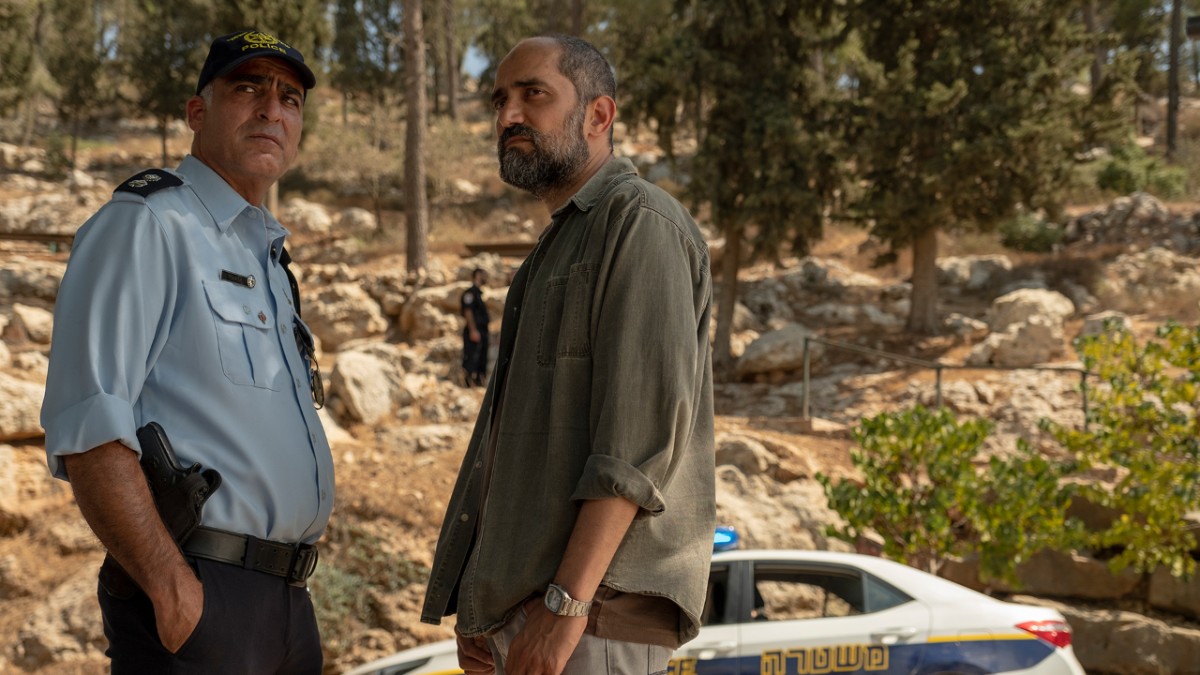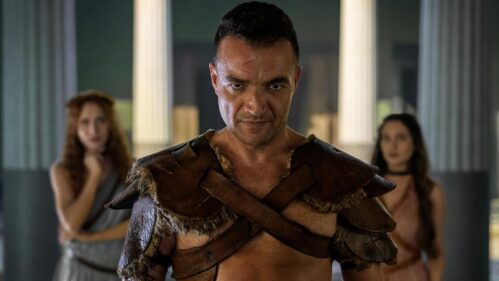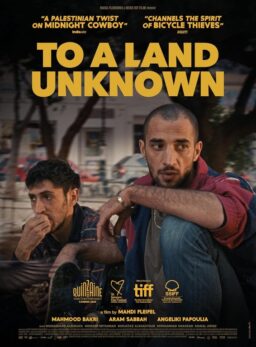Just three months after “Chernobyl” became a word-of-mouth hit of the summer, HBO returns to world history for another series about a crises, and one that viewers might be all too familiar with: Israel and Palestine. But “Our Boys” has a true-crime story that may not be as well known, regarding the tension that escalated over kidnappings that affected both sides in the summer of 2014. Show creators Hagai Levi, Joseph Cedar and Tawfik Abu-Wael take a saga that comes with a lot of given tension that just doesn’t arrive on screen, especially as the series seems to embody the problem of some shows being far too long then they need to be. There’s so much at stake and yet “Our Boys” doesn’t have an urgency, one that I fear will be fatal to the show especially as the tale’s sporadic twists are spread too thin across ten episodes.
“Our Boys” is very much like a missing child epic from a Dennis Lehane story (“Gone Baby Gone,” “Mystic River“) with its first episode starting with the disappearance of three Israeli boys in Jerusalem. By the end of episode one, their bodies have been discovered, and the police are trying to keep an eye out for any revenge plots, while controlling the public narrative. They know that people are going to be upset—and reactive—and even the media statements by the parents of the missing children have to be monitored so much as to not rile up angry crowds even more.

But then “Our Boys” moves onto a revenge plot by episode two, and in its first big set back doesn’t give the opening kidnapping storyline a fulfilling conclusion. It instead focuses on the disappearance of an Arab boy named Muhammad (Ram Masarweh), whose fate leads to another political mess and PR disaster, especially as the outraged people in his East Jerusalem neighborhood clamor for justice, and start to become destructive. This saga is given a personal angle by following his grieving father, Hussein (Jony Arbid), who learns in due time that his son is no longer as private affair, but that of hundreds of thousands of people. In a powerful passage in an earlier episode, he witnesses a wave of people forcefully claim his son (so to speak), and he realizes that he has a better chance at changing the literal direction of the angry crowd than in having a proper private sense of grief.
Meanwhile, “Our Boys” becomes a type of procedural into investigating the disappearance, as police collaborate with the Israel Security Agency (AKA Shabak) to use expansive surveillance, hacked phones, and anything else they can use to hear or see to track possible suspects. The main investigator Simon (Shlomi Elkabetz) moves back and forth from a monitor-filled control room to the streets, sometimes wearing his yarmulke as a means to go under cover, investigating some Jewish men who could be related to the incident. But tensions are so high that arrests must be 100% certain, otherwise the turmoil across the land could get worse. “Our Boys” takes us through the step-by-step process among such a backdrop that would be fascinating if it had more kick, but instead the literal nature of it leads to an overall dry tone.
Even with a story like this, given all of its inherent conflicts, “Our Boys” has a frustrating slackness. Part of that feels to be because of its length—it’s a series that runs for ten 55-minute episodes, and seemingly features every minor interaction that could possibly move the plot along. But it’s also due to the visual storytelling, which feels limited to handheld camerawork and cross-cutting between different narratives, without the atmosphere gaining a proper nervousness. It’s the strange case of a narrative that might have been curated carefully with its investigative beats, but so little appears to happen in each episode that a necessary tension is lost.

This stagnant nature strands the uniformly strong cast, who often wrestle with massive emotions in a time of personal and political strife becoming intertwined. “Our Boys” wants to get into everyone’s head, and only sometimes conveys the urgency of a parent’s pain, or the anger of someone who feels attacked, wanting to retaliate. It spends a fair amount of time with a group of young Jewish men, including the meek Avishai (Adam Gabay) and his brash leader, Yosef (Ben Melech), himself the son of a revered rabbi. It’s in these long stretches, watching these men as they celebrate the Sabbath—and sneak away to break its rules—that the series wants to pull some truth from out of their conservative shells, but “Our Boys” can’t quite articulate it, while the pacing suffers in the process.
The series’ intrigue appears to be held together by Shlomi Elkabetz, whose performance as the investigator at the center is calming but weighed down. His constant slouch and cool nature portrays someone methodical and yet privately imperfect, something that’s often more fascinating than the muted conversational scenes he’s always in.
The biggest curiosity within “Our Boys” comes most of all from its interest in hearing out both sides, while casting judgment on no one. It bounces around between different sides and always points out their neighborhoods, and every now and then you’ll see the distinction between how someone who is Jewish or Arabic feels about the injustice at hand. Everyone has an assumption about who could have done such unspeakable things, and it’s based on their biases—there’s even a surprisingly funny moment where the cops share text messages from their mothers, who have their own unflappable biases about who did it. Effectively, “Our Boys” even plants these characters within news footage, and naturally expands the scope of the story from the image of intimate conversations to massive, raucous crowd scenes, the latter provided by footage from the real events.
One has to give HBO a little credit for bringing this project to life—it’s the anti-“Euphoria” or “Succession” when it comes to salacious material, and it is going to tell its mega-slow-burn yarn across nine weeks, premiering its first two episodes tonight. But even without those hit series in mind, “Our Boys” feels like a saga that desperately needs to be reined in, especially as it can’t even maintain the sense of nervous conflict that initially inspired it. You can too easily imagine “Our Boys” leaving a deeper impression by being half the episode length, or cut into a two-hour movie.
Six episodes watched for review.












